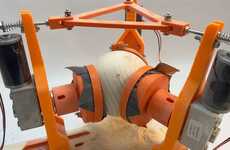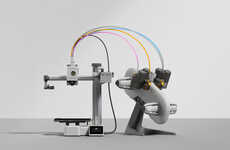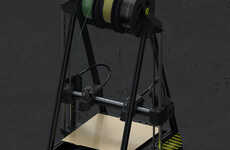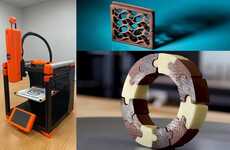



Free public and online 3D printing courses reduce barrier-to-entry for hobbyists
Trend - Low-cost or free 3D printing courses are being hosted by libraries, universities, and independent websites. These courses lower the barriers of cost and education for 3D printer use to draw more adults to the field, whether as a creative outlet or for CAD (Computer-Assisted Design)-related jobs.
Insight - While many individuals find a balance between work and personal lives, such as hobbies and social connections, others find themselves unfulfilled, either in the workplace or in keeping occupied. This leads to these groups searching for new avenues for enjoyment, such as new employment or a new hobby. As a result of these combined desires, hobbies with the potential to generate income are preferred. Fields that reduce the barriers via free and public services can draw in these individuals.
Insight - While many individuals find a balance between work and personal lives, such as hobbies and social connections, others find themselves unfulfilled, either in the workplace or in keeping occupied. This leads to these groups searching for new avenues for enjoyment, such as new employment or a new hobby. As a result of these combined desires, hobbies with the potential to generate income are preferred. Fields that reduce the barriers via free and public services can draw in these individuals.
Workshop Question - What could your brand or industry do to lower consumer barriers related to cost or education?
Trend Themes
1. Low-cost 3D Printing Courses - Low-cost or free 3D printing courses are being hosted by libraries, universities, and independent websites, lowering the barriers of cost and education for 3D printer use.
2. Online Creative Course Platforms - Online learning platforms like Coursera offer 3D printing courses from top universities, making it easy for adult hobbyists to find and enroll in courses that match their interests and goals.
3. 3D Printing Resource Databases - Online platforms like Printlab provide 3D printing courses, projects, and challenges, promoting creativity and innovation by teaching users how to use 3D design and printing skills to make unique products.
Industry Implications
1. Education - The education industry can benefit from offering low-cost or free 3D printing courses, attracting individuals looking to gain new skills and knowledge.
2. E-commerce - The e-commerce industry can tap into the market of 3D printing hobbyists by providing platforms for selling 3D-printed models, offering 3D printing services, or selling related products and accessories.
3. Manufacturing - The manufacturing industry can explore the disruptive opportunities offered by 3D printing technology, such as prototyping and customized production, to improve efficiency and flexibility in the production process.
4 Featured, 23 Examples:
23,525 Total Clicks
Date Range:
Feb 24 — Feb 24
Trending:
Warm
Consumer Insight Topics:























